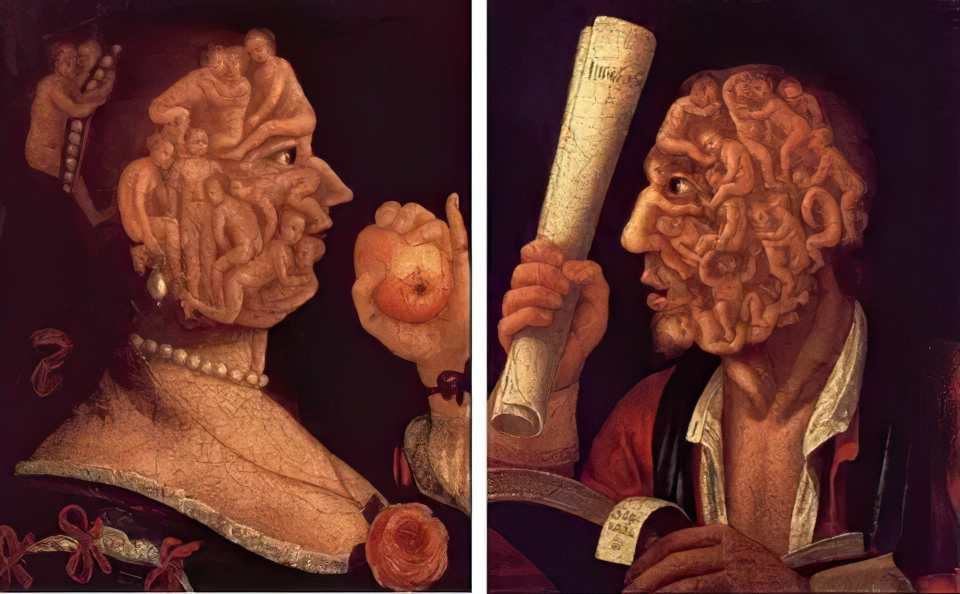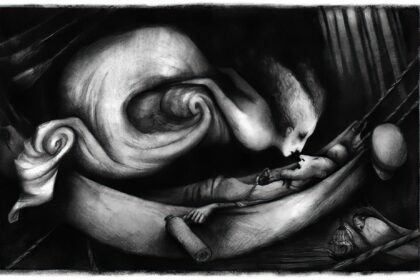Welcome, curious readers, to a peculiar and eye-opening journey through the labyrinth of the human body! Buckle up as we embark on an exploration of its most extraordinary and, let’s face it, downright gross facts. From stomach-churning tidbits that will make your toes curl, to mind-boggling revelations that will leave you in awe, prepare to discover the weird and wonderful aspects that make our bodies simultaneously fascinating and a little bit icky. So, whether you’re ready to embrace the bizarre or just in search of a fascinating conversation starter, join us as we divulge some captivating, albeit unconventional, secrets about our very own human anatomy.
- Table of Contents
- 1. The Unsettling Truth About Our Gut Microbes: A Thriving Ecosystem of Trillions!
- 2. Surprising Odor Origins: The Science Behind Body Odor and Farting
- 3. Eye-Opening Revelations: The Bizarre World of Eyelash Mites and Eye Gunk
- 4. Unveiling Bacterial Hotbeds: Your Tongue, Navel, and Armpits as Microbe Havens
- In Retrospect
Table of Contents
- 1. The Unsettling Truth About Our Gut Microbes: A Thriving Ecosystem of Trillions!
- 2. Surprising Odor Origins: The Science Behind Body Odor and Farting
- 3. Eye-Opening Revelations: The Bizarre World of Eyelash Mites and Eye Gunk
- 4. Unveiling Bacterial Hotbeds: Your Tongue, Navel, and Armpits as Microbe Havens
- Q&A
- In Summary

1. The Unsettling Truth About Our Gut Microbes: A Thriving Ecosystem of Trillions!
The human gut is home to an astonishingly diverse community of microorganisms, collectively known as gut microbes. These tiny inhabitants form a thriving ecosystem that plays a pivotal role in our overall health and well-being. Believe it or not, there are trillions of these microbes living in our intestines, outnumbering our own cells by a factor of ten!
While the idea of trillions of bacteria may sound unsettling, the truth is that the majority of these gut microbes are beneficial and essential for our bodies to function optimally. They help us digest food, produce vitamins, support our immune system, and even communicate with our brain. In fact, the gut is often referred to as our “second brain” due to its intricate connection with our mental and emotional well-being.
- Rich biodiversity: The gut microbiome consists of hundreds of different microbial species, each contributing to the overall balance and diversity of the ecosystem.
- Mutualistic relationships: Gut microbes and their human host have a mutually beneficial relationship. While we provide them with a constant supply of nutrients, they help regulate our metabolism and protect us from harmful pathogens.
- Effects on mental health: Emerging research suggests that imbalances in the gut microbiome may be linked to various mental health conditions, such as depression and anxiety. Maintaining a healthy gut ecosystem is crucial for our emotional well-being.
The incredible complexity and importance of our gut microbiome highlight the need for us to nurture and support it. By consuming a diverse diet rich in fiber, fermented foods, and prebiotics, we can promote the growth of beneficial gut bacteria. Additionally, avoiding excessive use of antibiotics, managing stress levels, and getting enough sleep all contribute to a healthy gut. So let’s embrace and appreciate our gut microbes, as they truly are the unsung heroes of our bodies!

2. Surprising Odor Origins: The Science Behind Body Odor and Farting
Humans are fascinating creatures, and one of the most peculiar aspects of our physiology is the production of body odor and farting. While these may be considered embarrassing, there’s actually a scientific explanation for these peculiar aromas that emanate from our bodies.
Body odor, commonly known as B.O., is caused by the bacteria that thrive on our skin. As we go about our day, our sweat glands produce perspiration, which provides the perfect environment for these bacteria to flourish. The bacteria break down the sweat into acid byproducts, resulting in an unpleasant smell. Interestingly, not all sweat is created equal – the sweat produced by the apocrine glands in our armpits and groin areas tends to have a stronger odor due to its higher concentration of proteins and fats.
On the other hand, farting or flatulence, as it is scientifically known, occurs when we consume certain foods that produce gases during the digestion process. These gases, such as methane and hydrogen sulfide, build up in our intestines and need to be expelled. While some may find it humorous, it’s actually a natural bodily function. Foods high in sulfur compounds, like beans and cabbage, are notorious for causing potent gas. Additionally, swallowing air while eating or drinking carbonated beverages can contribute to a gassy situation. So, the next time you find yourself in a smelly situation, don’t be too embarrassed; blame it on the fascinating science of body odor and farting!

3. Eye-Opening Revelations: The Bizarre World of Eyelash Mites and Eye Gunk
When it comes to the world of our eyes, there are some surprising and downright strange things going on behind the scenes that most people are completely unaware of. One such revelation is the existence of eyelash mites, tiny creatures that live on our eyelashes and feed on dead skin cells and oils produced by our bodies. While the thought of microscopic organisms crawling on our lashes might seem unsettling, fear not! These mites, scientifically known as Demodex folliculorum, are harmless and actually play an important role in maintaining the health of our eyes.
Another eye-opening fact is the phenomenon known as eye gunk, also referred to as sleep dust or eye boogers. We’ve all experienced waking up with crusty residue in the corners of our eyes, but have you ever wondered what it actually is? Well, eye gunk is a combination of mucus, oil, dead skin cells, and dust particles that accumulate overnight. As you sleep, your eyes produce tears and mucus to keep them moist and lubricated, and this mixture often collects in the corners. This natural process is your body’s way of cleansing and protecting your eyes while you rest, and it’s completely normal!
Next time you notice a little bit of eye gunk or start contemplating the fascinating ecosystem of your eyelashes, remember that these quirks are just a part of the bizarre yet fascinating world of eye health. So embrace the weirdness, keep those eyelashes clean, and let those friendly eyelash mites do their important work unnoticed!

4. Unveiling Bacterial Hotbeds: Your Tongue, Navel, and Armpits as Microbe Havens
Did you know that your body is a bustling ecosystem for trillions of bacteria? While it may sound unpleasant, these microscopic organisms actually play a crucial role in maintaining your overall health. Among the most surprising bacterial hotbeds are your tongue, navel, and armpits, which host a diverse community of microbes that are both beneficial and harmless. Let’s take a closer look at these hidden habitats and discover the fascinating world of microorganisms that reside within us!
Your Tongue: It’s not just for tasting food; your tongue is also home to countless bacteria. In fact, the human mouth is one of the most diverse microbial habitats in the body! While some bacteria on the tongue can cause bad breath, most are harmless or even beneficial. These bacteria help break down food particles, protect against harmful pathogens, and contribute to maintaining a healthy oral environment. To keep your tongue’s bacterial community in check, regularly scrape your tongue with a tongue scraper or by gently brushing it with a soft toothbrush.
Your Navel: Surprisingly, your navel is an often-overlooked microbe haven. This warm, damp, and protected area provides an ideal environment for bacteria to thrive. Studies have even shown that every person’s navel has a unique microbial fingerprint. While most bacteria found in the navel are harmless, some types can be associated with certain skin issues. To keep your navel clean and healthy, gently cleanse it with warm water and a mild soap, being careful not to scrub too vigorously and disrupt your skin’s natural balance.
In Retrospect
And there you have it, a glimpse into the fascinating, and sometimes gross, world of the human body! From the unbelievable number of bacteria residing in our gut to the peculiar noises our joints make, it is clear that our bodies are truly unique and intricate machines. While some of these facts may have given you the heebie-jeebies, we hope you now have a greater appreciation for the marvel that is the human body. So, the next time you find yourself scratching your head or cringing at an unusual bodily function, remember that it’s just another extraordinary aspect of being human. Embrace the grossness, for it is what makes us wonderfully imperfect creatures.
















